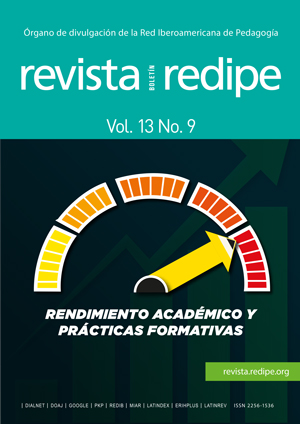“Queriendo me”: Behavior change program for strengthening self-esteem in adolescents based on the trasteo rich model
Main Article Content
Keywords
Program, Self-esteem, Adolescents
Abstract
One of the most critical stages in the development of self-esteem is adolescence, here self-esteem is a determining factor for personality development, mental health and adaptation to the environment; invading this vital space causes repercussions in interpersonal relationships, anxiety, poor adaptation and deficits in school performance, among others, (Ojeda & Cárdenas, 2017). The objective of the research was the implementation of a behavior change program to strengthen self-esteem in adolescents, called “Wanting - Me” which was based on the Rich-Transition Model (MT), also known as the Stages of Change Model, which has been identified as the most widely used to study behavior change in health. The RCT describes change in terms of five stages and explains behavior change in terms of five variables: stages and processes of change, decisional balance, self-efficacy and temptation (Cabrera A, 2000). Methodology: It was quantitative, longitudinal and pre-experimental. Simple random probability sampling with stratified randomization in which 49 high school students participated, 14 work sessions were carried out based on the stages of change model during a period of 6 months. The results were obtained from the pre and post intervention data collection of the SelfEsteem Scale for Adolescents Orlando Cerna Dorregaray 2020, 40 questions 0.864, and the McDonald Omega value was 0.867. The results show from the Chi test=7.16; p=.007 that the program is effective in improving self-esteem in adolescents. These results suggest the need to replicate the program in different sociocultural contexts.
References
Cogollo, Z., Campo-Arias, A., & Herazo, E. (2015). Escala de Rosenberg para autoestima: consistencia interna y dimensionalidad en estudiantes de Cartagena, Colombia. Psychologia: Avances de la Disciplina, 9(2), 61-71. Recuperado a partir de http://www. scielo.org.co/scielo.php?script=sci_ serial&pid=1900-2386&lng=en&nrm=iso
Collado Díaz A, Chamizo Sánchez I, Ávila Herrero S, Martin Ascencio S, Revert Cabanes A, & Sánchez Fernández, A. (2022). Protocolo de evaluación e intervención en autoestima. Universidad Autónoma de Madrid. [Archivo PDF]. https://www. uam.es/uam/media/doc/1606899112545/ protocolo-de-evaluacion-e-intervencionen-autoestima-cpa-uam.pdf
Hernández Sampieri, R. (2023). Metodología de la Investigación. McGraw Hill Higther Education Manual de estrategias didácticas. [Archivo PDF]. https://drive.google.com/file/ d/1MfdwBTB2k7UAj2Vm3xTyn5nvud__ U1VH/view
Mora Cancino, AM. & Hernández Valencia, M. (2015). Embarazo en la adolescencia. Revista Ginecología y Obstetricia de México, 83(1). Recuperado a partir de https://www.medigraphic.com/pdfs/ ginobsmex/gom-2015/gom155e.pdf
Ojeda Pérez, S. y Cárdenas Cuesta, M. (2017). El nivel de autoestima en adolescentes entre 15 a 18 años. (Tesis de licenciatura en psicología) Ecuador.Universidad 36 de Cuenca. Recuperado de https://dspace.ucuenca. edu.ec/bitstream/123456789/28093/1/ Trabajo%20de% 20Titulaci%C3%B3n.pdf
Perales Garza, Y. (2021). Aportaciones sobre el auto concepto y autoestima. Nunca es tarde para aceptarse. Revista Dilemas contemporáneos: educación, política y valores. Recuperado a partir de https:// www.scielo.org.mx/scielo.php?script=sci_ arttext&pid=S2007-78902021000600068
Rondón Bernard, J. E., & Reyes Fernández, B. (2019). Introducción al ModeloTransteorico: Rol del Apoyo social y variables Sociodemográficas. Revista Electrónica De Psicología Iztacala, 22(3). Recuperado a partir de https://revistas. unam.mx/index.php/repi/article/ view/70932
Rosenberg, M. (1989). La sociedad y la autoimagen del adolescente. Edición revisada. Middletown: Wesleyan University Press.
Universidad Nacional de Loja. (22 de julio de 2024). La autoestima de los adolescentes en el entorno escolar. https://unl.edu.ec/ index.php/noticia/la-autoestima-de-losadolescentes-en-el-entorno-escolar
Valencia C, (20025). Cuadernos de ejercicios para aumentar la autoestima. [Archivo PDF]. https://autoayuda-eft.com/wpcontent/uploads/ebooks_misc/2017/05/ cuaderno-de-ejercicios-para-aumentarla-autoestima-preview.pdf



